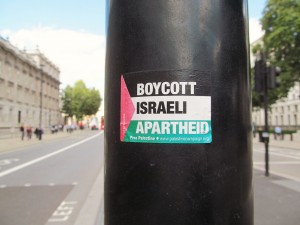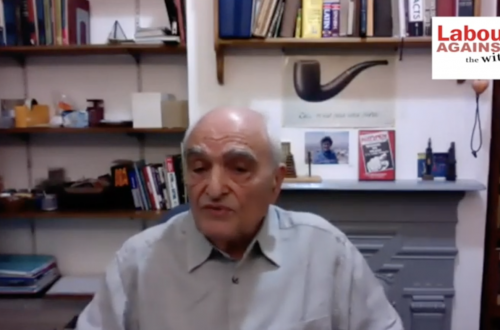Oxford University academic Michael Yudkin critiques the ‘Academic boycott’ promoted by the Palestinian Campaign for the Academic and Cultural Boycott of Israel (PACBI) and its UK partner the British Committee for the Universities of Palestine (BRICUP). Placing both under the spotlight, Yudkin finds that not only do they contradict the fundamental academic principle of universality but their true purposes are much more radical than their stated aims suggest. ‘I oppose both the policies of Benjamin Netanyahu’s government towards the Palestinians and the occupation of their territories’ he writes, but ‘in contrast to PACBI and BRICUP, however, I do not believe in imposing my views on others by force, I don’t believe in requiring people to pass a test of political orthodoxy before they are allowed to practise their profession, and I don’t believe in punishing academics and artists for the misdeeds of their government.’
These days the phrase ‘academic boycott’ seems to have acquired a thoroughly restricted meaning. It has nothing to do with China, which has been in occupation of Tibet since 1949 and which routinely imprisons or ‘disappears’ human-rights lawyers; nothing to do with the US or the UK, which invaded Iraq in 2003 without the authorisation of the UN Security Council; and nothing to do with Russia, which seized 27,000 square kilometres of Ukrainian territory two years ago and has (with the enthusiastic support of Iran) been helping the government in Damascus to bomb Syrian civilians. Instead, ‘academic boycott’ is a term of art to describe a means of punishing Israeli academics for the actions of a government over which they have little or no power.
Supporters of the boycott say that their aims are to support Palestinian universities and to oppose the occupation of Palestinian territories, but I show here that their true purpose is much more radical than these stated aims suggest. In addition, I illustrate the way in which the academic and cultural boycotters of Israel disrupt the work of individual scholars and artists – disruptions that belie the moderate and peaceable language the boycotters use to describe their tactics.
First let’s get some acronyms out of the way. The Palestinian Campaign for the Academic and Cultural Boycott of Israel (PACBI) is a branch of the Boycott, Divestment and Sanctions (BDS) movement. PACBI’s ‘key partner in the UK’ is the British Committee for the Universities of Palestine (BRICUP) (PACBI, 2009). The latest manifestation of BRICUP is an advertisement that appeared in The Guardian last October, in which some 340 British academics signed a commitment (‘commitment4P’) to boycott Israeli academic institutions. The commitment4P website gives a prominent link to the booklet Why Boycott Israel’s Universities? published by BRICUP (2007). In what follows I shall quote from both. READ MORE.



